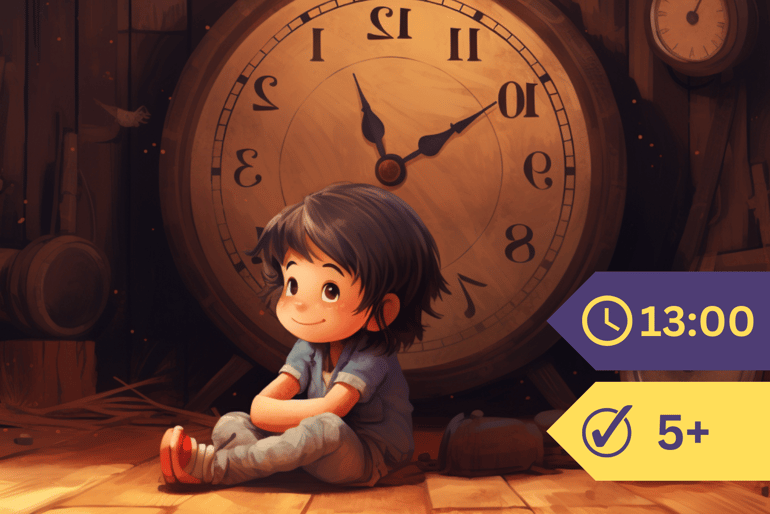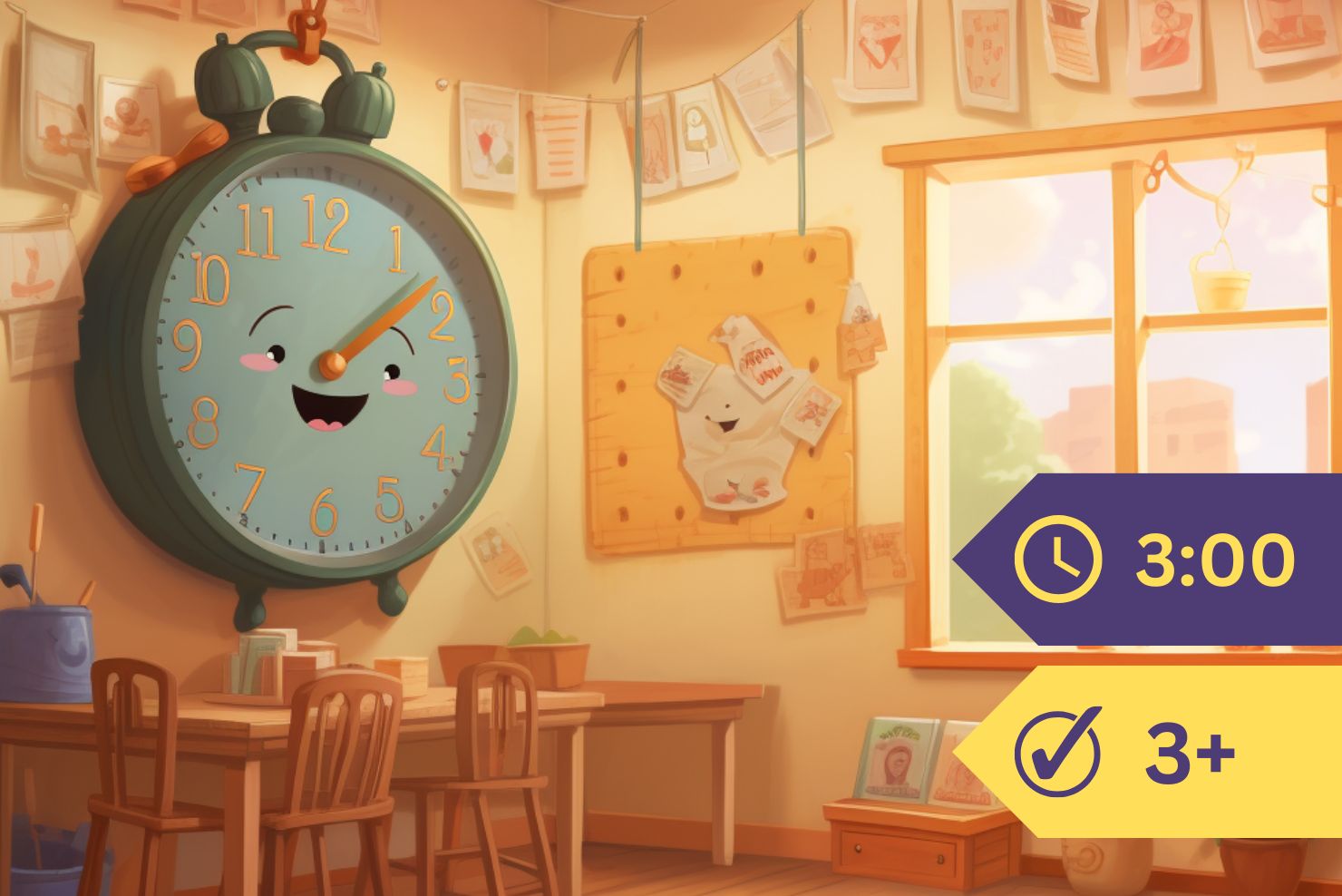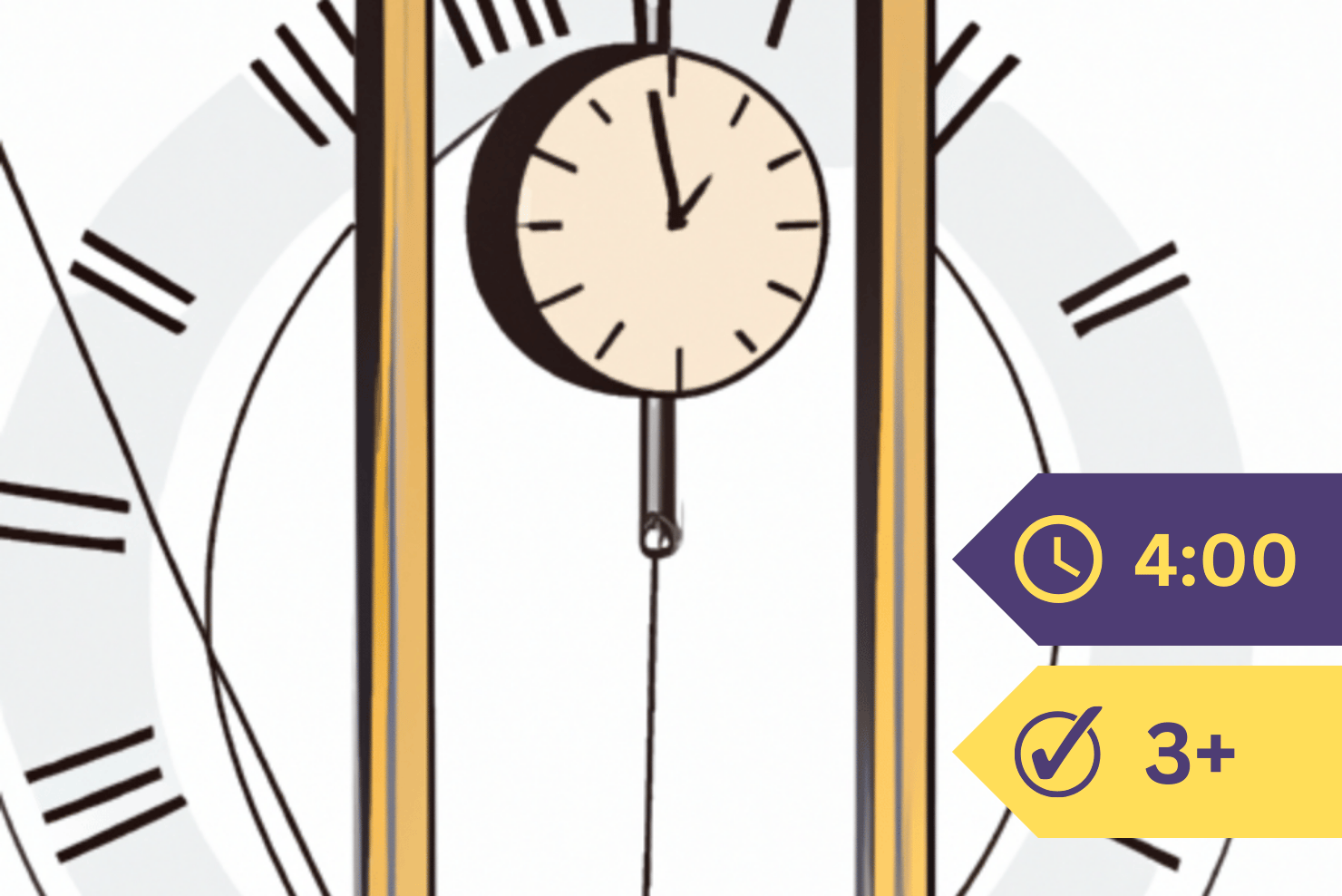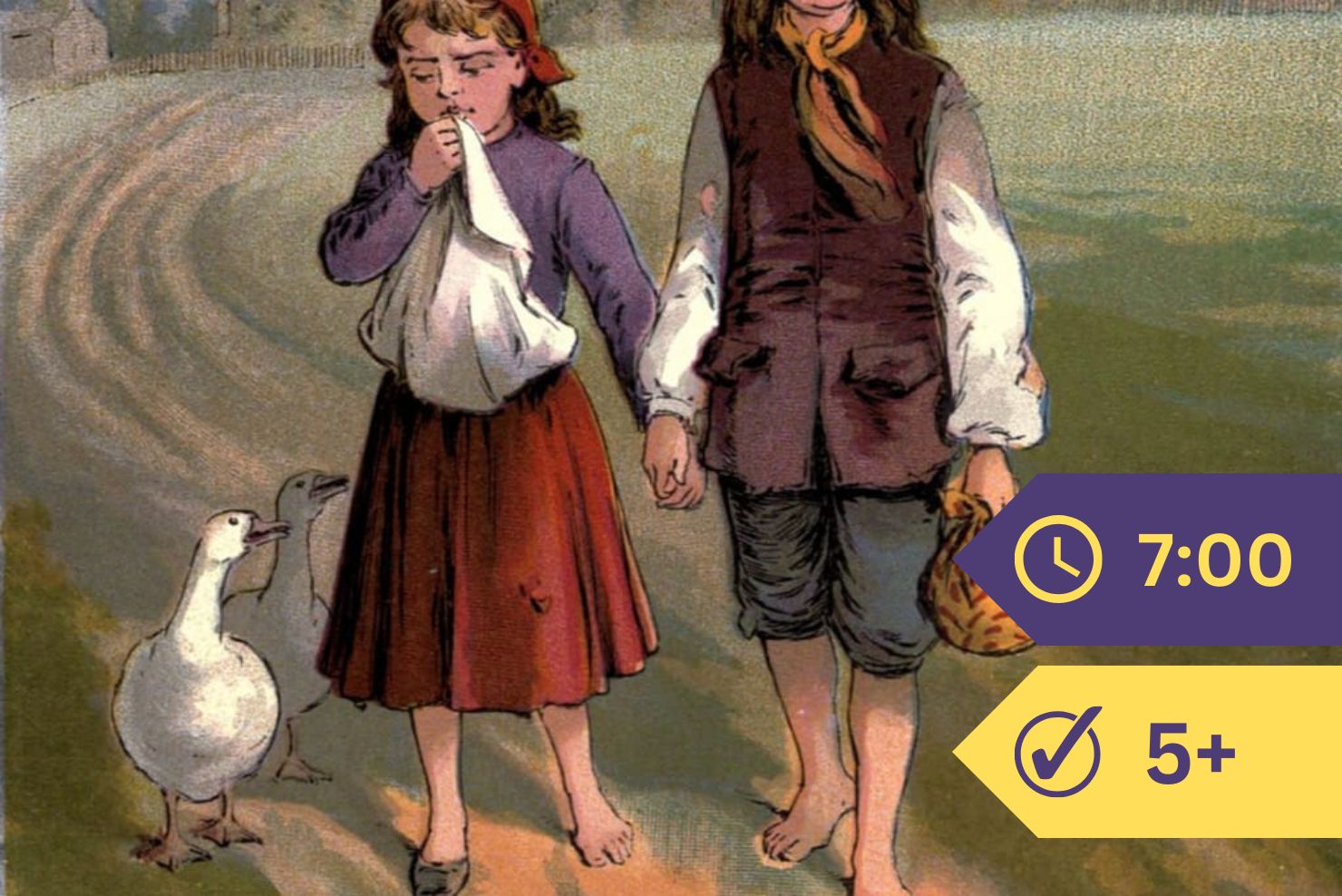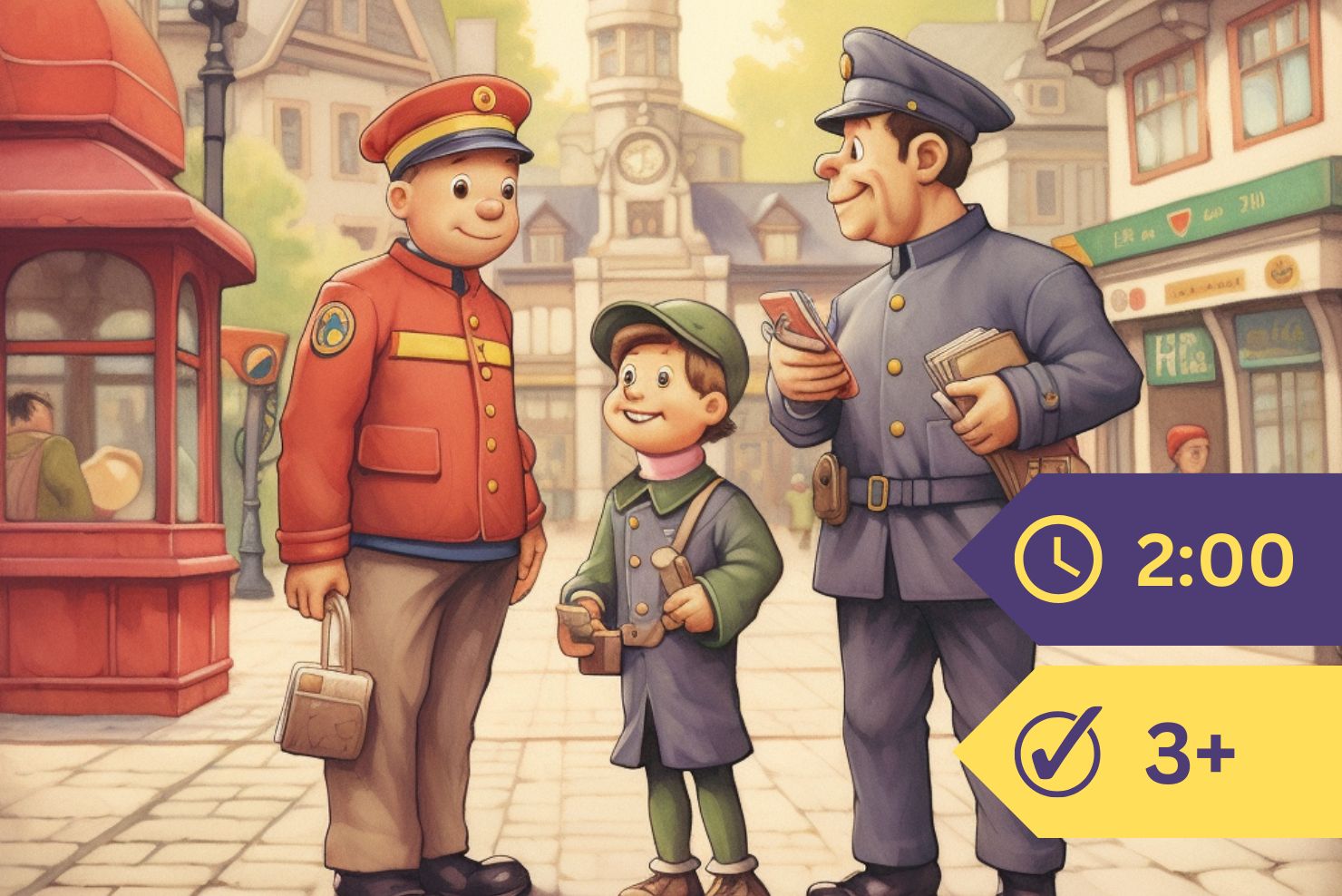Dolly Dimple sat on a rug by the hall fire, thinking. I doubt whether you have ever seen a great old-fashioned hallway like the one where Dolly was sitting, for such hallways are not built nowadays. This one was part of a great, rambling house which was more than a hundred years old. Dolly Dimple was born there and Dolly Dimple’s mother and grandmother had lived in it a long time. They had left their home across the water and come to this one when Dolly’s mother was a tiny child. Dolly was certain there had never been another such house, and this hall was her special delight. It was square, and had a shining oak floor, half covered with furry rugs. The walls were made of the same dark wood, and at the end was the cherry open fireplace where mossy logs roared and crackled all winter long, lighting up the dark corners and telling wonderful stories of the summer-time and their lives in the forest. Near by was a broad staircase, on the first landing of which stood a clock, and it was about this clock that Dolly Dimple was thinking so deeply that wonderful night.
It was a very tall clock, — taller than Dolly’s papa, — and it had a long glass door through which she could see the weights and the pendulum which never moved now. Above this was the round, good-natured face which Dolly was morally certain looked very different at different times; when she was good it smiled sweetly upon her, but when she was cross — and I am sorry to say Dolly was cross sometimes — it looked at her so sorrowfully! It could sympathize, too; for Dolly said that when she was in trouble she had seen the tears streaming down the old clock’s face; but since she was looking through a mist of tears herself at such times I should not like to say that this was really true.
But the strangest thing of all about this clock was that it would strike. Now maybe all you wise little ones do not think it a very strange thing for a clock to strike; but when I tell you that this clock did so in spite of the fact that its wheels had not moved for many years, that will surely make you wonder! And then it would strike at the strangest times. No one ever knew when it was going off, and it had been known to strike as many as seventeen! Dolly couldn’t understand it at all, and as no one explained it to her, it had puzzled her a great deal. That night she was more mystified than ever; for at daybreak the dock had struck five, and how could the clock have known that it was her fifth birthday? She lay curled up on the soft rug, thinking about it, until she began to grow drowsy. The crackling of the wood sounded farther and farther away; the shrill chirp of the cricket which lived at the back of the fireplace grew fainter and fainter. Suddenly a voice — a very cracked voice — broke the silence.
“Dolly! Dolly Dimple!” it said. Dolly jumped up so hastily that the startled cricket sprang backward nearly into the fire. Where had the voice come from? Dolly peeped carefully about the hall until her eyes rested upon the old clock, when she was surprised to see that a new look had crept over its face, — a look which told Dolly that it was the clock that had spoken. And, sure enough! As she was gazing at it, it spoke again. “Would you like to hear a story, Dolly?” it asked.
Now there was nothing Dolly liked better than a story; and forgetting her surprise, in her eagerness to hear what the clock had to say, she answered quickly: “Yes indeed, clock; can you tell me one? ”
“That I can”, said the clock. “I’ll tell you the story of my life.”
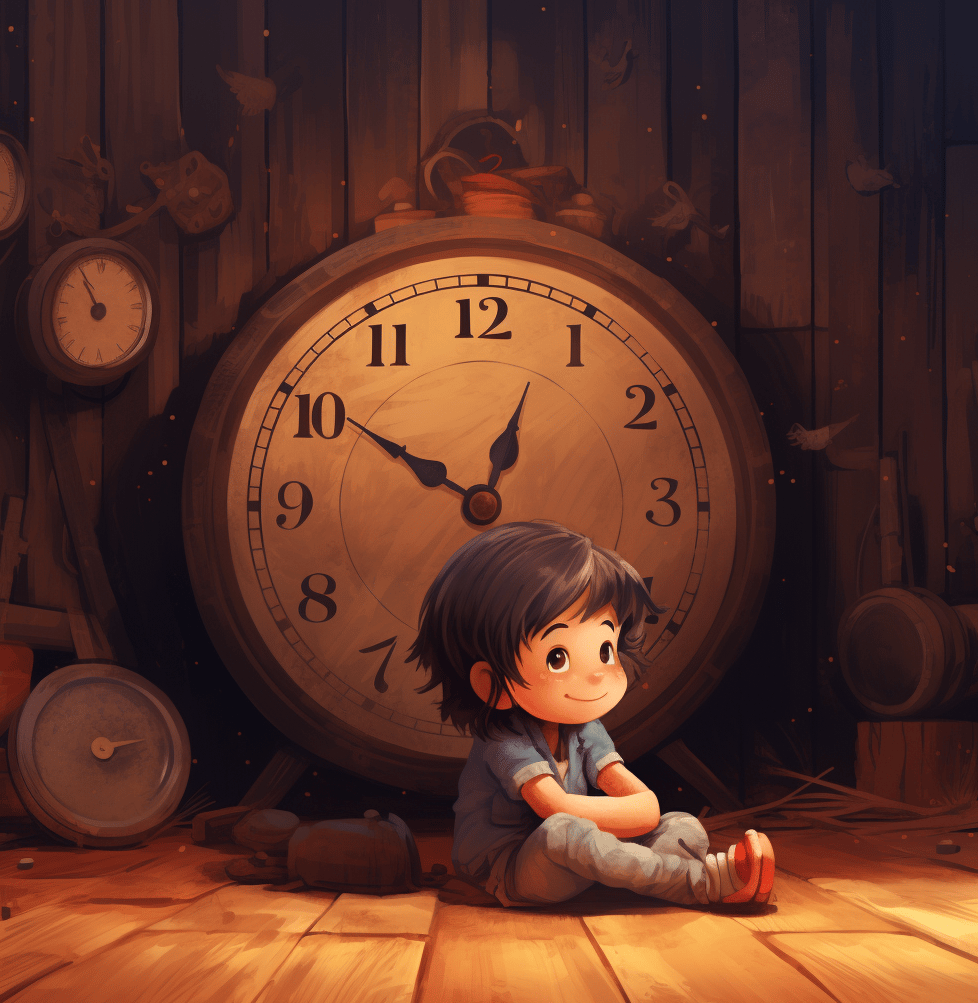
Dolly felt sure that now the mystery was to be solved, and curled herself up more comfortably to listen; the busy cricket straightened her cap and folded her hands to show her deep attention; the fire gave out a warmer glow, and the dock began: — “Perhaps, Dolly Dimple, you will understand better what a wonder I am if I tell you that once upon a time there wasn’t a clock upon the face of the earth.”
“Why-ee ! What a sto — “, began the cricket, and then stopped; but it was quite plain that she did not believe a word of it.
“No clocks!” cried Dolly, “why, how did little girls know when it was school-time, or dinner-time, or — or — anything?”
“They had other ways of telling time”, answered the clock; “one of the first things by which they measured it was a stick, — a straight stick!”
” A stick! ” exclaimed Dolly.
“A straight stick!” murmured the cricket; “I knew that clock was crazy.”
“I was brought up to think that it was impolite to interrupt”, said the clock.
“Of course it is”, said Dolly, “we will not breathe another word, will we, cricket?”
“But a stick!” groaned the cricket, shaking her head.
“Yes”, said the clock, “try it for yourself ! Go out of doors the next sunny morning and plant a little stick in the ground. If it is early, the shadow will be a great deal longer than the stick itself, and will look as if hiding from the sun; as noon draws near, you will find the shadow creeping up and up, until just at noon, the stick seems to swallow it; and then, as the sun moves on toward the west, the shadow peeps out and creeps off on the other side of the stick until night, when shadow and stick are both swallowed in darkness. Now don’t you see how you could tell time by the stick and its shadow? And it was this which made somebody think of a sundial.”
“A sundial”, broke in the cricket, who could not keep still; “What is that?”
“It looks like a doll’s table with a little piece of metal standing up in the center; and on the table top is marked the length of the shadow which this piece of metal casts at different hours of the day.”
“Was that the only clock they had?” asked Dolly.
“If your cat had lived in those days they would have used her for a timepiece”, said the clock.
The cricket evidently thought this too foolish a story to be noticed at all, and even Dolly looked shocked; but the clock knew what it was talking about and went right on. “If you look at Kitty’s eyes when she first wakes in the morning, you will find that the dark place in the middle of the eye is very big and round; but soon you will notice that it is growing narrow, until by noon it is as fine as a hair; and then it will slowly grow larger again, until, when night comes, it will be as big and round as it was in the morning.”
“What a bother it must have been to tell time in these ways! ” said Dolly.
“Yes, I think so myself”, replied the clock, “and people began to think that they ought to have something better to depend upon. So about five hundred years ago, some one invented a clock, — not a big, handsome one like myself, but a very plain affair that had no pendulum and could not strike.”
“Poor thing!” sighed Dolly.
“Better not strike at all than strike as some clocks do”, observed the cricket rather spitefully.
“But it was a clock, and considered a very wonderful thing in those days”, continued the clock; “and people must have been pretty well satisfied, for they did not add a pendulum for several hundred years.
“Are you very old?” asked Dolly. “Yes, I am very, very old. It must be over a hundred years since my hands began to move. — Ah ! that was a proud day for my maker. Every tiny, shining wheel was as perfect as perfect could be, and my case was a beautiful sight. On the day that I was finished the little clockmaker was the happiest man alive. He examined me in every part with the greatest care, and my perfection delighted him. Then he took a big key, and wound me up, touched my pendulum, and with a ‘tick-tack, tick-tack,’ I started out on my life-work. The little clockmaker did not long have me to admire, however, for very soon an old lady bought me, and I was carried away across the blue rolling water and placed in this hall. I am worn-out and useless now, but then I was of the greatest importance. Nothing was done without consulting me. Ever and ever so many bright-eyed children have raced up and down the stairs and curled up by the fire just as you are doing. I have loved them all and tried to show them that it was only by keeping our hands busy working for others, and by doing right, that we could be happy and make our friends love us. They may have thought that all I said was ‘tick-tack, tick- tack,’ but really I have always said as plainly as plainly could be,— ‘Do right, do right.'”
“Dear old clock!” murmured Dolly; and even the cricket turned her head and wiped away a tear.
“Before I stop”, said the clock, “I must speak of one thing that others besides yourselves have noticed”, and the clock glanced at the cricket, who looked as if she wanted to sink through the floor. “You must know that a great while ago my hands refused to move another minute. It was a sorry day for me, and sometimes my feelings overcome me even now when I think of the past. At such times it is a great relief for me to strike.”
“You dear old clock”, cried Dolly, ” You shall strike as often as you please, and if the cricket ever dares — ”
“Dolly ! Dolly Dimple!” Harry was calling.
Dolly sat up and rubbed her eyes. “What is the matter? ” she asked.
“That’s what I’d like to know! Why, the very idea of a little girl with a birthday sleeping as if it were any other day !”
“Sleeping! I haven’t slept a wink Why, the clock has been talking, and the cricket, and, — ”
“Very likely! As if I’d believe that when I’ve knocked over the poker and the shovel and the tongs, and you never so much as winked.”
Dolly looked up at the old clock, but never a word did it say. The broad, good-natured face beamed down upon her the same as ever, but she fancied it wore a wise expression that said as plainly as so many words: “Keep quiet; boys are not half so wise as they think they are. Don’t mind him, but remember all I have told you, and try to learn something every day from everybody. Be glad that you have clocks to tell you the time and to remind you to keep your hands busy and to do right, do right.”
“Dolly! Dolly! Why do you keep staring at that old clock? I declare you are half asleep yet!”
Dolly rubbed her eyes and stared at her laughing brother, and then again at the now silent clock. She was glad that she had been warned to keep quiet, for she did not feel like telling the whole story then; but when she grew up she used to tell little children “What the clock told Dolly.”

